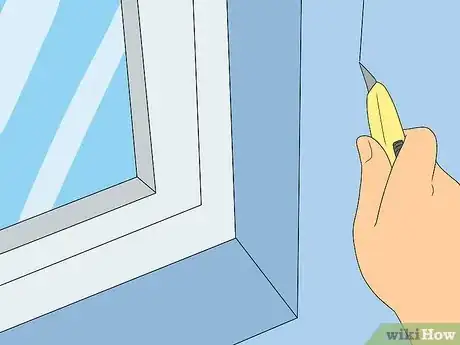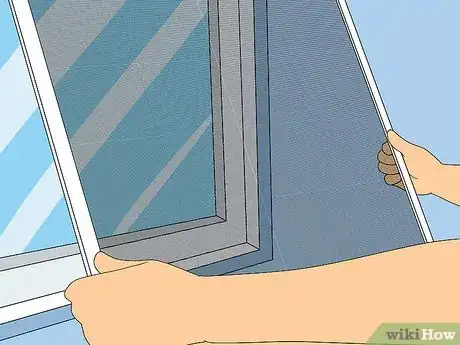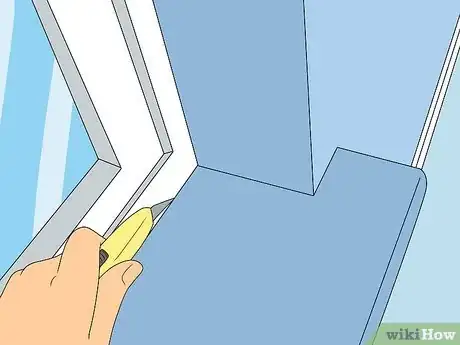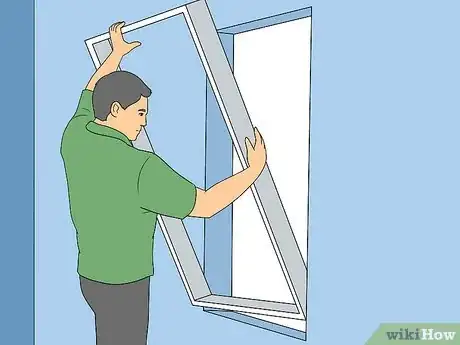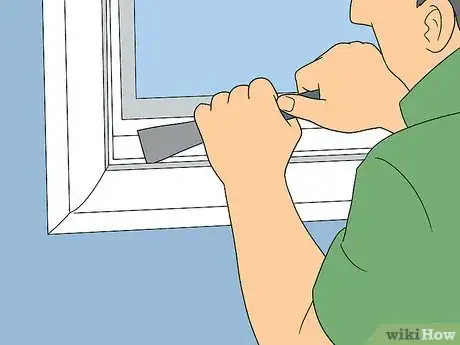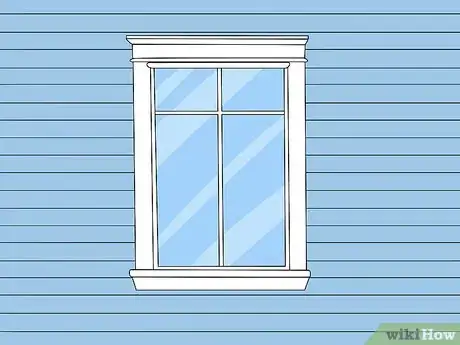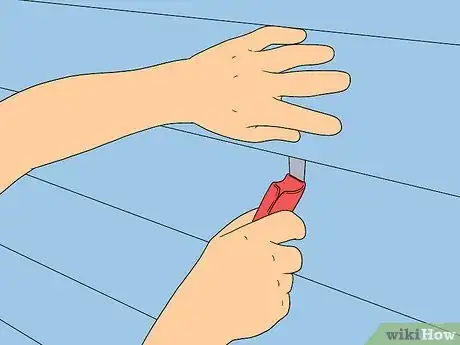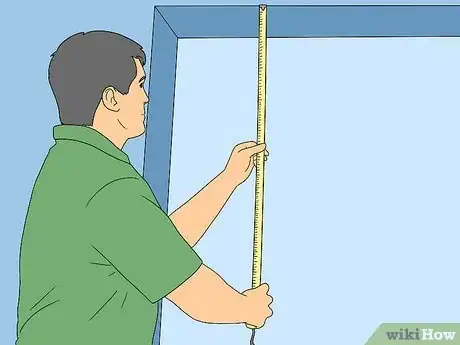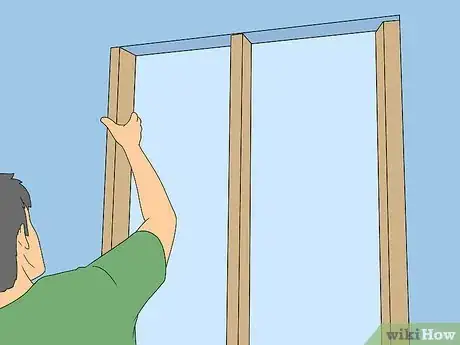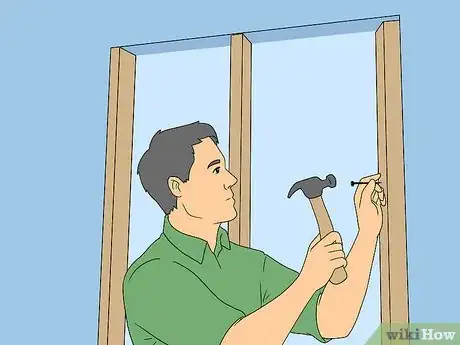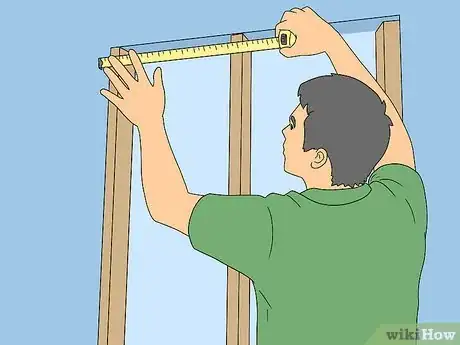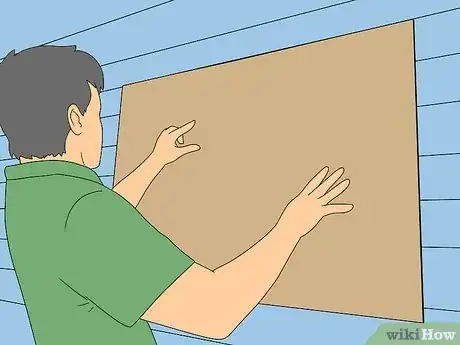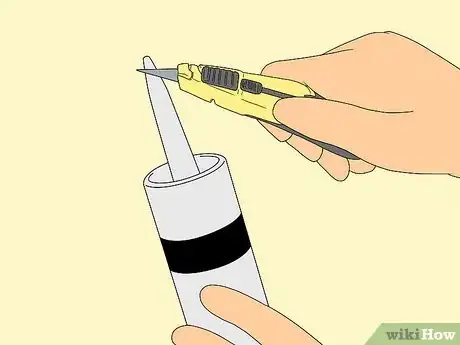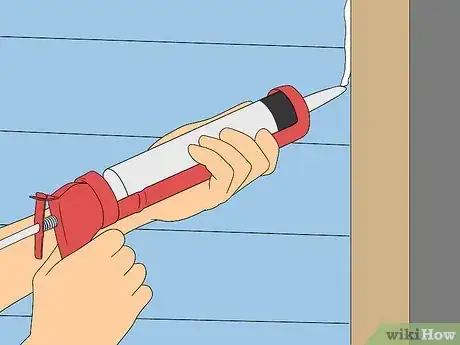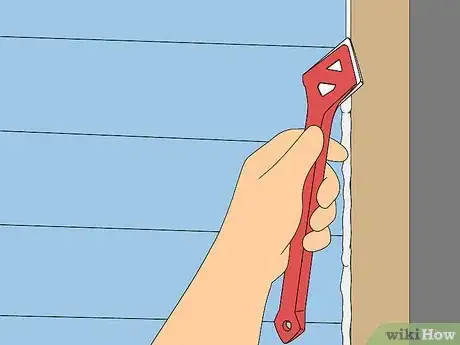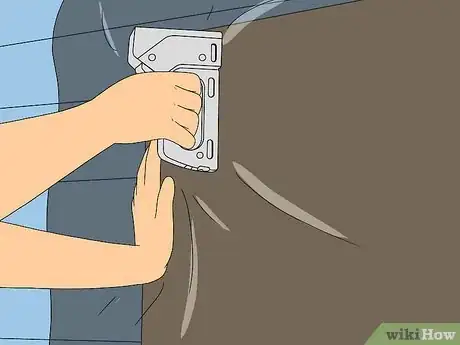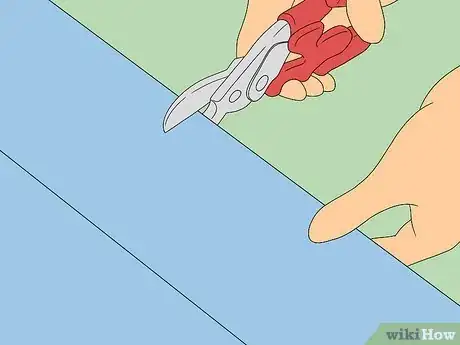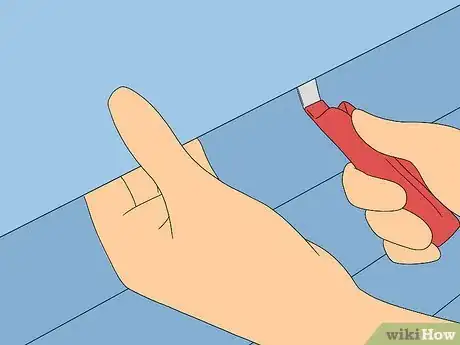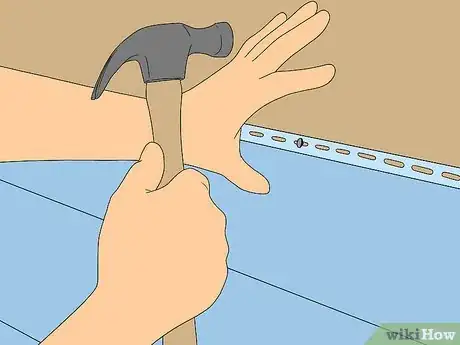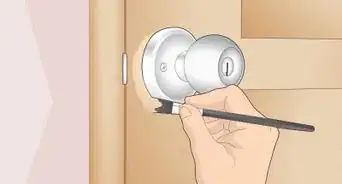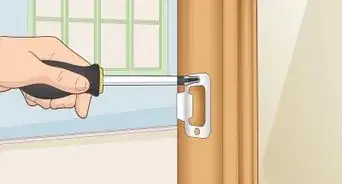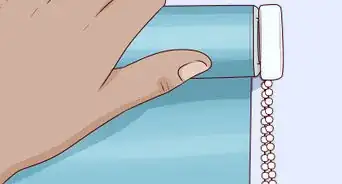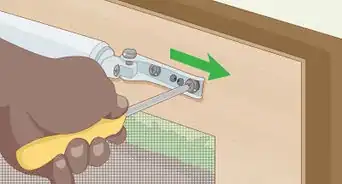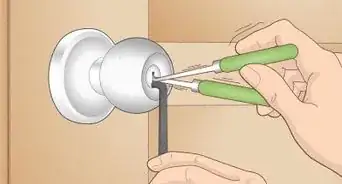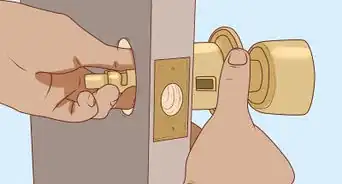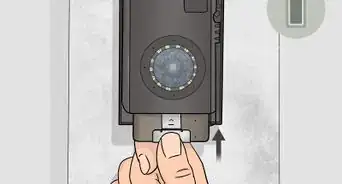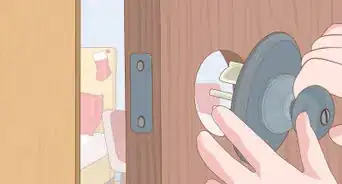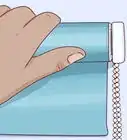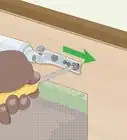This article was co-authored by Ryaan Tuttle. Ryaan Tuttle is a Home Improvement Specialist and the CEO of Best Handyman, Inc. in Boston, Massachusetts. With over 17 years of experience, he specializes in building home service businesses, focusing on creating scalable and efficient brands. With the help of his global team, the companies have achieved over 10+ million in sales and received recognition through magazine features, and enjoy partnerships with wikiHow and Jobber field service software. Boston Magazine and LocalBest.com have named Best Handyman Boston the Best Handyman in Boston. Ryaan holds Construction Supervisor and Home Improvement Contractor Licenses.
This article has been viewed 40,681 times.
Are you working on a house with vinyl siding and want to remove an exterior window but don't know what to do? Does it seem too complicated? Well, this is a simple list of instructions that will make it doable! Follow it closely, and you should have no problem.
Steps
Preparing Window Area for New Vinyl
-
1Take out dry wall surrounding window on the inside of the house. Dry wall surrounding the inside of the window may get in the way of the process. To do this:
- Use a utility knife to "score" the perimeters of the drywall you want to remove. "Scoring" is the using a knife to make shallow cuts without cutting it all the way to allow the dry wall to be removed easier.
- Use a pry bar or a similar tool to pull off the drywall slowly and carefully, so as not to break drywall that you don't want to remove.
-
2Remove the window and screen. There is no exact way to do this, as long as you end up with the window and screen out while not destroying the frame or anything else around the window.[1] Some suggestions:
- Use a hammer or a drill to take out any nails or screws that are holding the window in place.
- Sometimes there are little pieces of wood between the window and the wooden studs that hold the window tight. Remove this by pounding out with a hammer or using a pry bar like tool to push them out or using a drill to unscrew them if screwed in.
Advertisement -
3Cut the perimeter of the window frame.
- This will make it loose and easier to pull out.
-
4Pull out the exterior window frame. This is a simple step that can be started by using a hammer or drill to remove nails or screws that hold in the window frame.
- Use a pry bar or hammer to "wedge" out the frame.
-
5Remove the exterior vinyl casing. This will be on the perimeter of the open space in the wall and will most likely be the same color and material as the actual siding itself.
- Use hammer to remove nails used to keep it in place.
- Use pry bar to pull it out carefully without scratching or breaking surrounding vinyl.
-
6Identify which pieces of vinyl siding need to be removed. You will be able to easily see the separate vinyl pieces by noticing where one piece overlaps the other on the side.
-
7Remove the pieces of vinyl siding from around the window area. Do not cut the vinyl off.
- Use a siding removal tool. Extract nails keeping the vinyl pieces in place in order to prepare vinyl pieces to be removed.
- Use this tool by inserting it where a piece of vinyl overlaps a piece below it and then sliding it across until you reach the end of the piece.
-
8Measure the vertical length of the open space using a tape measure. Write down this measurement, as it will be used for the next step.
-
9Cut the "2 by 4s" into three pieces equal to the length of the measurement of the previous step. Then, place these pieces of wood in the middle and the two sides of the open space.
- If it is difficult to place these in their spots, use a hammer to pound them in as desired.
-
10Nail in the pieces of wood. This depends on the size of the window, but generally, as mentioned in the previous step, nail one to each side of the hole and one directly in the middle.
- Nail in horizontally for side pieces and diagonally for middle pieces. A nail gun may make nailing easier and quicker, especially for nailing diagonally.
-
11Measure perimeters of the open space. Cut a sheet of wood accordingly to the measurements so that it will fit.
- This will be a sheet of wood at least a half inch thick for strength.
-
12Insert the exterior wall. Insert it on the exterior side of the pieces of wood.
- Nail or screw in securely to where the pieces of wood are behind the sheet of wood.
- Make sure the sheet of wood is "flush" against the studs. "Flush" means with no space between the pieces of wood and the sheet of wood.
-
13Cut the tip of a tube of caulk. Then, insert a long, skinny object in the tip and then remove it.
- This allows an opening for the caulk to come out of.
-
14Place tube of caulk into a caulk gun and squeeze caulk in the desired spaces described below.
- Caulk the perimeter of the new exterior wall. Caulk is used to seal spaces between two objects. In this case, the objects are the perimeter of the new exterior wall and the perimeter of the old open space.
- This prevents any air leakage.
-
15Smooth out the caulk. This guarantees that there are no open spaces for air to get out of.
- An easy way to do this is using your finger.
-
16Attach the moisture barrier. A moisture barrier can simply be a thin plastic sheet that covers the area of the new exterior wall.[2] It is needed because it prevents moisture from getting inside.
- Cut the thin plastic sheet to appropriate dimensions so that it will cover the entirety of the new exterior wall.
- Using a staple gun, staple the moisture barrier to the new exterior wall.
Installing the New Vinyl Siding
-
1Cut the new pieces of vinyl. If you look at the area you are working on, you will see spaces of different lengths where the vinyl needs to be replaced.
- Measure the lengths of the spaces with no vinyl.
- Cut the new vinyl pieces accordingly. A vinyl cutter works best for this task.
-
2"Zip" the newly cut vinyl pieces to the old vinyl pieces still on the side of the house. "Zipping" is the term used in siding when the top and bottom of two pieces are connected.
- This can only be done using the Siding Removal tool mentioned in Step 5.
- Once again, use this tool by inserting it where a piece of vinyl overlaps a piece below it and then sliding it across until you reach the end of the piece.
- This tool removes two pieces that are already "zipped" and also "zips" two pieces together.
-
3Nail in all of the new pieces of vinyl. All of the vinyl pieces have little holes on the top of them where nails can be inserted.
- Use a hammer to insert nail in about every fifth hole, or whatever you may feel necessary.
- It is best to use roofing nails for this.
-
4Inspect all of the new pieces of vinyl.
- If some pieces are not nailed or "zipped", they may become too loose and get damaged.
Warnings
- Always wear safety goggles and work gloves. This is not a high-risk project, but things can happen. Work safe and have fun!⧼thumbs_response⧽
Things You'll Need
- Safety goggles
- Work gloves
- Utility knife
- Pry bar
- Hammer
- Nails (optional: nail gun)
- Drill or screwdriver
- Siding Removal Tool
- 1 or 2 pieces of "2 by 4s" (depending of size of the window)
- Tape Measure
- Sheet of wood larger than the window. (At least a half inch thick)
- Caulk and caulk gun
- Moisture barrier
- Staple gun and staples
- Vinyl Cutter
- Vinyl Siding (matching the color of the house)
